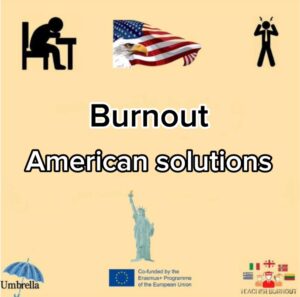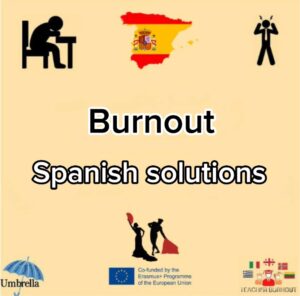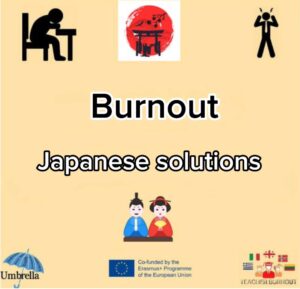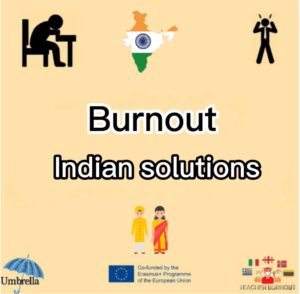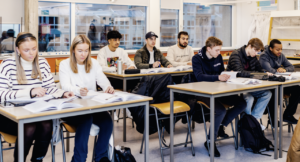English through Media Literacy for professional development.
From 2022 the project “English through Media Literacy for professional development” carried out in October. It was initiated and organized by British Council Lithuania and LAKMA (Lithuanian English Language Teachers Association) and iniciated by the coordinators of the Erasmus+ project:KA220-SCH – Cooperation partnerships in School Education
The teacher burnout and the new educational reality as a challenge of cooperation and professional enhancement
2021-1-EL01-KA220-SCH-000031629
As many as 7 teachers of Joniškis “Aušras”gymnasium were included in this project. Gymnasium is one of the members of the Association. Teachers’ impressions:
Deputy Director for Education:
The course “English Language and Media Literacy for Professional Development” was a pleasant experience and increased motivation to learn. The classes were focused on improving grammar and language. Everything I learned was necessary and useful. The teacher is very friendly, communicative and motivating. Thanks to the Association of Teachers of English and the British Council for the opportunity and knowledge.
Information technology teacher:
I use the acquired knowledge of a foreign language while implementing international Erasmus+ and eTwinning projects. I participated in project mobility in Greece and Bulgaria together with a geography teacher who also participated in English language courses organized by LAKMA, organized activities in English for Spanish students who visited the gymnasium. I taught a class for 10-year-old high school students about media and information literacy, during which students created infographics about media and their types, lies, disinformation, and how to recognize them.
Librarian:
The lessons exceeded my expectations, I remembered a lot, I learned much more than I expected.
Russian language teacher:
It was useful and interesting to remember and check the available knowledge. I really liked the teacher’s ability to present new material concretely, clearly and comprehensibly. I was impressed by the teacher’s patience and tolerance.
Lithuanian language and literature teacher:
We learned a lot in 100 hours. The hardest part was finding time to do homework and learn new words. The courses are intense; there was no time to be lazy. I want to thank the teacher who patiently explained again and again, who encouraged and praised, encouraged to correct their own mistakes.
Information technology teacher:
After these courses, I can speak more freely with colleagues from other countries (Erasmus+ projects), look for material for my lessons in English.
Geography teacher:
The opportunity to deepen the knowledge of the English language is always gratifying. We are supported by the best English teachers! A fun and rewarding experience!
Leadership and leadership education competencies for the institution development.
Association of Heads of Educational Institutions of Joniškis District
LITHUANIA
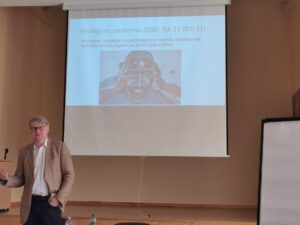
Long-term qualifications development programs: “Leadership and leadership education competencies for the institution development” module II
“Leadership principles and burnout”
According to the policy plan the members of association participated in a seminar and were discussing different possible ways how to avoid teachers burnout in different educational institutions.
Seminar was organized in Palanga 16-17 May.
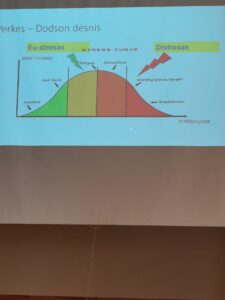
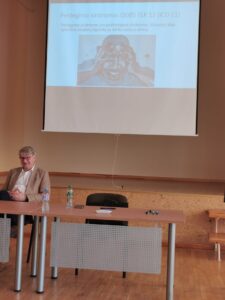
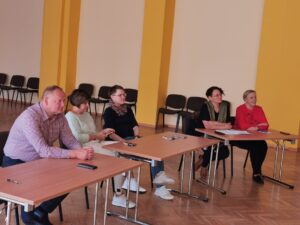
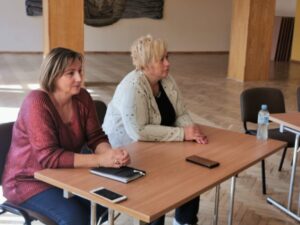
Bergen (Bjørgvin), is a city …

Bergen (Bjørgvin), is a city on the west coast of Norway with population of 285.900. Bergen is the second largest city in Norway. The city centre and northern neighbourhoods are on ‘the city fjord’, and the city is surrounded by mountains. Bergen is known as the city of seven mountains.
Trading in Bergen may have started as early as the 1020s. According to tradition, the city was founded in 1070 by King Olav Kyrre and was named Bjørgvin, ‘the green meadow among the mountains’.
The city is an international center for aquaculture, shipping, the offshore petroleum industry and subsea technology, and a national centre for higher education, media, tourism and finance. Natives speak a distinct dialect, known as Bergensk.
Bergen has a mild winter climate, though with a lot of precipitation. From December to March, Bergen can, in rare cases, be up to 20 °C warmer than Oslo, even though both cities are at about 60° North. The Gulf Stream keeps the sea relatively warm, considering the latitude, and the mountains protect the city from cold winds from the north, north-east and east.

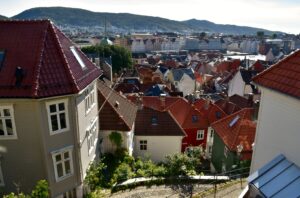
Celebrations always make school life better!
DNA Day is an annual, global celebration of the discovery of the DNA double helix structure.
This year is extra special! People across the world commemorate both the 20th anniversary of the Human Genome Project’s completion and the 70th anniversary of the discovery of the DNA double helix.
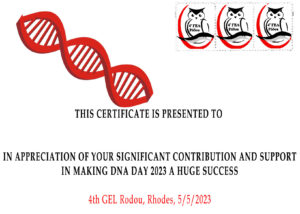
In 4th GEL Rodou we made DNA Day very special by making Origami models of the DNA double helix, extracting strawberry DNA, observing all phases of mitosis with microscopes and finding out about genes among students.
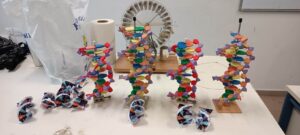
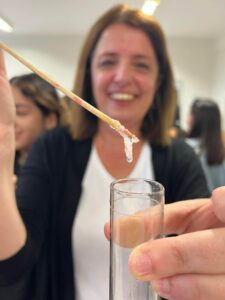

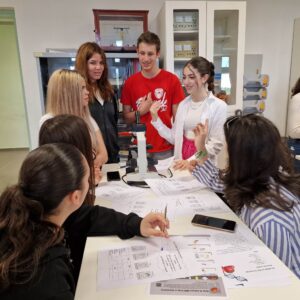
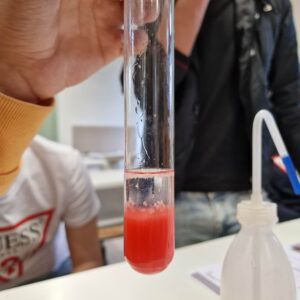
Dare to dream.
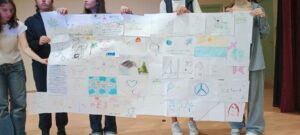

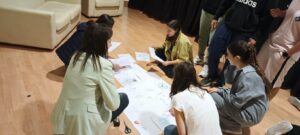
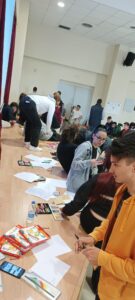
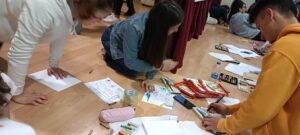
Happy EuropeDay.
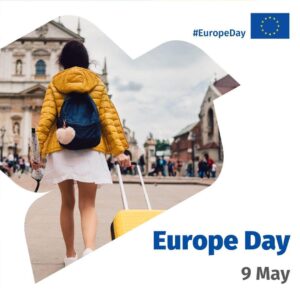
German solution.
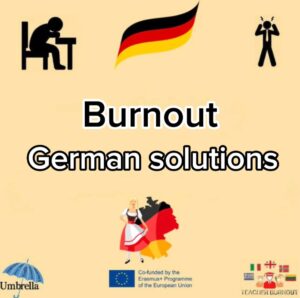
Hi dear friends!
Today is Germany’s turn to share inspiring tips about the burnout problem.
Philosophy – The Germans are convinced that reading Nietzsche and following his philosophy helps to avoid stress. Accept things that cannot be changed. Work on what is in your power. Spend more time on something that cheers you up, like tea and cookies on the balcony – why not?
Car smash – One can apply to a special office where (s)he can smash a used car with a sledgehammer for a symbolic fee. This action contributes to the release of negative emotions.
However, according to some experts, such methods are not welcomed.
Wellness courses – following the slogan “Prevention of the disease is cheaper than its treatment”, hospital funds are ready to pay for the improvement of the health of their patients and provide numerous health improvement courses. Also, German hospital offices pay for courses aimed at teaching stress management techniques to patients of any age.
Office activities – many companies increase investment in programs aimed at maintaining the health of employees: the concern created free wellness centres, open fitness studios, massage rooms, held meditation courses and offered light therapy. Some companies spend five minutes of collective choral singing during the working day: medical studies show that it helps to strengthen the nervous system.
Lunch breaks in disco format are increasingly popular with the production hall turning into a place where you can both eat and refresh yourself with a refreshing drink.
Sharing the best practicies
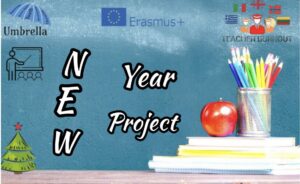
Hey, hey, hey!
Today we are back with new tricks and hacks on how to prevent or deal with stress at the workplace. And our current “guest” is USA
Shortly speaking the American dream, is that if you work very hard, you will get success, money and recognition. But what’s the price of that? Did you know that the USA is ranked in 13th place with 52% in the list of the most stressful countries? It is curious to find out the methods they use to get rid of negativity:
– Acceptance – well, first of all, it may sound corny, but they admit that there is a problem and you may agree that this is the first massive step towards healing or dealing with the issue. No one’s yelling and screaming that work stress is a myth or it exists only for weak people. Admitting problems is considered “emotional maturity” in America. Starting almost from the school bench, children are taught that such problems exist, to admit this kind of experience – it is not a sign of weakness, but a normal human reaction.
– They visit a psychoanalyst – Americans usually do not search for a shoulder to cry on among friends or colleagues. The best decision is to visit a psychoanalyst who will help solve problems so that they will not come back repeatedly. This is an inseparable part of American life.
– Exercise – one of the top reasons Americans say they exercise is to reduce stress. Over a quarter of adults say they work out to reduce stress. Working out releases endorphins, prompts mindfulness, and boosts one’s mood—all of which can help mitigate stress symptoms.
– They are socially active – The average American woman usually gives money to charity, participates in local government, agitates in elections, attends church, volunteers, or even becomes a campaigner for the rights of some disadvantaged group or against some global negative trends such as pollution.
– Handmade – Americans appreciate things made with their own hands. They love dealing with stress by making handmade handicrafts and giving them to friends. And, of course, to receive such gifts, keep them carefully and appreciate them. Isn’t it lovely?
Yay! That was for the USA. Hope you liked our investigation and will be with us in future posts as well.
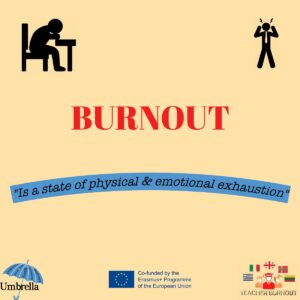
Other content from this project:
Spanish solutions https://cutt.ly/GwqwWHYh
Japanese solutions – https://cutt.ly/d54QT48
What is burnout? – https://cutt.ly/AwqPuFyb
Announcement post – https://cutt.ly/l4EPrM2
The project is supported by the European Commission within the scope of the Erasmus+ program.
https://www.facebook.com/photo?fbid=626411139520176&set=a.554912253336732
USA https://www.instagram.com/p/Csf65DGIaCA/
Spain https://www.instagram.com/p/Cr2jH-vIQ79/
Japan https://www.instagram.com/p/CrTMjYCoLMS/
What is Burn Out https://www.instagram.com/p/CqIJtgYor9h/
Announcement post https://www.instagram.com/p/CnPFh4NsYUd/
Indian solution
Namaste dear friends!
Today we prepared some Indian tricks and hacks against burnout and stress. It is quite logical as it is precisely ancient Indian people who discovered that stress is nothing but the inability to control our body, mind, emotions and vital energies.
The ancient Indian knowledge base in the form of Vedas, Upanishads, Vedangas, Puranas, and Bhagavad-Gita deals with fundamental human problems and has solutions to almost every possible problem that we are facing nowadays. Let’s take a look together at how they managed to fight against negative emotions and stressful situations.
Mindfulness: first of all, Indians do believe that we are the ones who create peace and harmony within ourselves. One has to learn the cheat code of his/her body, how to follow the inner voice and intuition and prevent negativity from entering our life.
Breathing techniques: yoga and meditation are among the most popular ways of de-stress and it is barely impossible to imagine an Indian who has never practised one. There are a lot of “Pranayamas” that can immediately destroy energy blockages in different parts of our bodies and bring harmony and serenity to our minds. Breath is such a vital part of yoga and meditation because it is considered a measure of our life. It stands to reason that controlling our breathing would then help lower anxiety, reduce stress, and make it easier to sleep.
Laughter: in India, they prefer to relieve stress with laughter or a simple smile. Indian laughter is a whole technique, a set of practices, with the help of which a person learns to fool himself and laugh like a child, by «turning off» his mind. In some companies, there is a special laugh therapy session at the beginning of each working day.
Indian massage: Indian head massage is a treatment that focuses on massaging acupressure points along the head, neck, and shoulders. It originates from an Indian alternative medicine system called Ayurveda, (science of life), whereby it is believed that the mind and body are intricately connected and thus can influence one another. Through this theory, it is understood that Indian head massage can not only reduce headaches and improve physical well-being, but it can also improve mental and emotional wellness too.
As we may see Indians live by the principle: “If life gives you a lemon make lemonade out of it” . Never be sad, never despair, try new ways to solve a problem, believe and you can manage anything.
So, isn’t it the right time that we turn to ancient Indian wisdom to destress ourselves and lead a happy life?
Other content from this project:
USA solutions – https://cutt.ly/rwwSg5Bh
Spanish solutions – https://cutt.ly/GwqwWHYh
Japanese solutions – https://cutt.ly/d54QT48
What is burnout? – https://cutt.ly/AwqPuFyb
Project announcement – https://cutt.ly/l4EPrM2
The project is supported by the European Commission within the scope of the Erasmus+ program.
